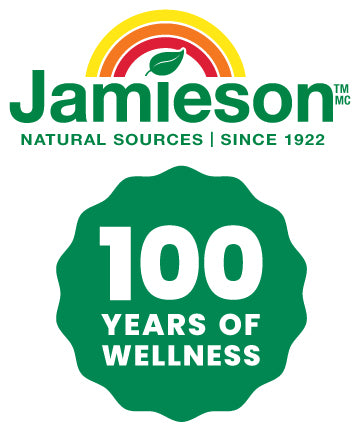Did you know that our gastrointestinal tract hosts more than 100 trillion microorganisms?[1] This is called the microbiota, and the number of microbial cells in the intestine actually outnumber the amount of human cells in the entire body by 10 times![2]
According to Health Canada “Probiotics are considered to be live microorganisms which, when administered in adequate amounts, confer a health benefit on the host”.[3] The microbiome is the new frontier of health research. In fact, research is showing that certain probiotics may have positive effects on many different areas within the body including:
- Providing B vitamins[4]
- Helping to digest carbohydrates[5]
- Helping with our immune system[6]
- Fighting off bad bacteria and viruses[7]
- Helping with IBS[8] & IBD symptoms[9]
- Affecting behaviour and cognition[10]
Don’t I Get Enough Probiotics From Yogurt?
Probiotics are naturally found in yogurt, sauerkraut, and other fermented foods. However, it can be difficult to eat enough as part of your daily diet. Research at University of Toronto showed that “the probiotic dosages contained in most food products are currently too low to provide the benefits shown in clinical trials…[you would need to eat up to] twenty-five servings of these products each day” to receive health benefits.[11] An easier option to ensure an effective dosage of probiotics daily is to supplement.
Why Take Supplemental Probiotics?
All Jamieson probiotics provide the Health Canada claim that they “help support gastrointestinal health and could promote a favorable gut flora”[12] Gut flora is another term for intestinal microbiome. We all have ‘good’ bacteria in our gut (probiotics). Everyone also has neutral microorganism such as yeast, as well as some ‘bad’ bacteria like e-coli. [13] Unfortunately changes to diet, exposure to chemical toxins, pathogen infections and antibiotic use can all effect which microbes thrive in our bodies.
Research has shown that large doses of antibiotics can lead to a loss of the natural intestinal microbiota. When this occurs, it is called dysbiosis. These losses of probiotics can increase the number of yeasts such as Candida albicans (the yeast responsible for yeast infections) as well as ‘bad’ bacteria, such as Proteus, Staphylococcus, and Clostridium difficile; C. diff is the antibiotic resistant strain that has previously closed down some hospital wards. Each of these ‘bad’ microorganism normally exist at low numbers in our intestines, but when they are able to overgrow, it can lead to poor digestive functions or the even intestine-related diseases.[14]
Probiotic Species Matter
The health benefits of probiotics are not only dose dependant, but also dependent on the specific species. Specific species /strains of probiotics have been shown to have other health benefits beyond balancing your microbiome. Examples include:
- Probi Digestis® (the trademarked species Lactobacillus plantarum 299v) found in Digestive Care™ Daily Probiotic 10 Billion. According to Health Canada “with daily use, [it] helps to provide ongoing relief of IBS symptoms such as abdominal discomfort, gas, and bloating.”[15]
Gender & Age Specific Species Matter
Certain combinations of probiotic species are also important for different groups of people. For instance:
- Women have a vaginal microbiota comprised of more than 200 bacterial species. Several specific species of lactobacilli dominate a healthy vagina and help to support against dysbiosis. Taking lactobacilli orally in a supplemental form can improve bacterial vaginosis and dysbiosis.”[17] Jamieson’s Women’s Probiotic Complex includes 4 strains of lactobacilli as well as 1 strain of bifidobacterium.[18]
- Research has shown that our bacterial balance changes as we age; “Age-related changes in nutritional behaviour and microbial diversity during aging result in a higher susceptibility to infections and diseases.”[19] Whether because of dietary changes or an increase of antibiotics, there are relatively low levels of bifidobacterium as well as lower diversity of strains overall in the elderly.[20] Adult 50+ Probiotic Complex provides a 10 strain formula with higher levels of bifidobacterium.[21]
Quality & Transparency Matter
Recent testing of probiotic supplements in the US, found that 42% had different species in the bottle compared to what was written on the label.[22] If someone has IBS or a colicky baby, they want to make sure they have the correct species of probiotics to find the relief they require. This why it is imperative to know which strains you are receiving.
Jamieson has become the first and only Canadian company to 3rd party DNA test probiotics. TRU-ID® is a Canadian, independent DNA certification program founded by the University of Guelph. It uses the latest in DNA technology to verify probiotic species. By using TRU-ID® certification, Jamieson is going above and beyond Health Canada requirements.
Currently Health Canada only requires testing to ensure the quantity of live probiotics. If a label says it includes 10 Billion probiotics, then it must contain 10 Billion live probiotics up until the expiry on the label. However, they do not require testing to ensure each of the individual strains are included.[23] The TRU-ID® symbol proves that the probiotic species listed on the label, are what you are receiving in the bottle. This provides an assurance that you will receive the health benefits expected for your age, gender or condition.
[1] Chung HJ et al. (2018). Metabolomics and Lipidomics Approaches in the Science of Probiotics: A Review. J Med Food. Nov;21(11):1086-1095.
[2] Ince MN et al. (2016). Understanding Luminal Microorganisms and Their Potential Effectiveness in Treating Intestinal Inflammation. Inflam Bowel Dis Jan;22(1):194-201.
[3] Health Canada. Questions and Answers on Probiotics. Accessed March 23, 2020: http://www.hc-sc.gc.ca/fn-an/label-etiquet/claims-reclam/probiotics_qa-qr_probiotiques-eng.php
[4] Arreola SL et al. (2014). Two β-Galactosidases from the Human Isolate Bifidobacterium breve DSM 20213: Molecular Cloning and Expression, Biochemical Characterization and Synthesis of Galacto-Oligosaccharides. PLoS. 9(8): e104056.
[5] Han YR et al (2014). Production of α- and β-galactosidases from Bifidobacterium longum subsp. longum RD47. J Microbiol Biotechnol. May;24(5):675-82
[6] Liu Y et al. (2018). Probiotics in Autoimmune and Inflammatory Disorders. Nutrients. Oct;10(10):1537.
[7] Ren DY et al. (2013). Lactobacilli Reduce Chemokine IL-8 Production in Response to TNF-α and Salmonella Challenge of Caco-2 Cells Biomed Res Int. : 925219.
[8] Didari T et al. (2015). Effectiveness of probiotics in irritable bowel syndrome: Updated systematic review with meta-analysis. World J Gastroenterol. Mar 14;21(10):3072-84.5 Stilling, R.M., 5 5
[9] Alagon Fernandez Del Campo P et al. (2019). The Use of Probiotic Therapy to Modulate the Gut Microbiota and Dendritic Cell Responses in Inflammatory Bowel Disease. Med Sci (Basel). Feb 22;7(2). Pii:E33
[10] Stilling RM Dinan TG Cryan JF (2014). Microbial genes, brain & behaviour - epigenetic regulation of the gut-brain axis. Genes, Brains and Behav. Jan;13(1):69-86.
[11] Scourboutakos MJ, et al. (2017). Mismatch between Probiotic Benefits in Trials versus Food Products. Nutrients. 9(4), 400
[12] Health Canada. Probiotics Monograph. Accessed March 26, 2020 at: http://webprod.hc-sc.gc.ca/nhpid-bdipsn/atReq.do?atid=probio&lang=eng
[13] Mondot S, et al. (2013). The human gut microbiome and its dysfunctions. Digestive Diseases. 31(3-4):278-85
[14] Yoon MY, Yoon SS. (2018). Disruption of the Gut Ecosystem by Antibiotics. Yonsei Med J, 59(1):4–12.
[15] Health Canada. Natural Product Number 80052022. Accessed March 24, 2019 at: https://health-products.canada.ca/lnhpd-bdpsnh/info.do?licence=80052022
[17] Mendling W. (2016). Vaginal Microbiota. Adv Exp Med Biol. 902:83-93
[18] Health Canada. Natural Product Number 80082168. Accessed March 24, 2020 at: https://health-products.canada.ca/lnhpd-bdpsnh/info.do?licence=80082168
[19] Landete JM, et al. (2017). Probiotic Bacteria for Healthier Aging Immunomodulation and Metabolism of Phytoestrogens. Biomed Res Int. Epub 2017: 5939818.
[20] Claesson MJ, et al. (2011). Composition, variability, and temporal stability of the microbiota of the elderly. Proc Natl Acad Sci U S A.;108 Supple 1:4586-91.
[21] Health Canada. Natural Product Number 80082740. Accessed Nov 15, 2019 at: https://health-products.canada.ca/lnhpd-bdpsnh/info.do?licence=80082740
[22] Morovic W, et al. (2016). Genotyping by PCR and High-Throughput Sequencing of Commercial Probiotic Products Reveal Composition Biases. Front Microbiol, 3;7:1747.
[23] Health Canada. Finished Product Specifications User Guide. Accessed March 24, 2020 at: https://www.canada.ca/en/health-canada/services/drugs-health-products/natural-non-prescription/legislation-guidelines/guidance-documents/finished-product-specifications-form-user-guide.html




